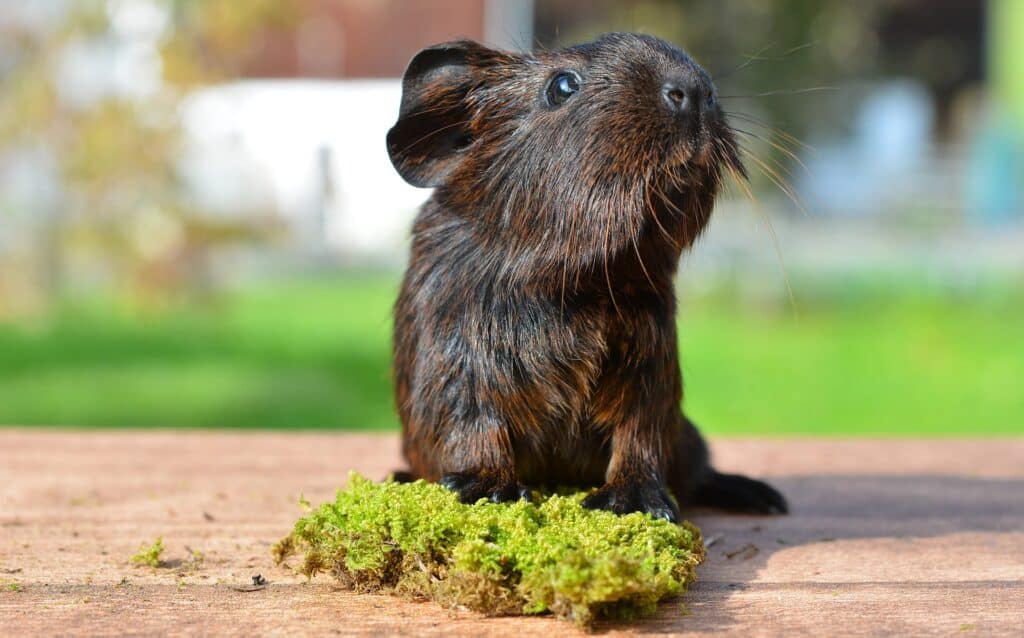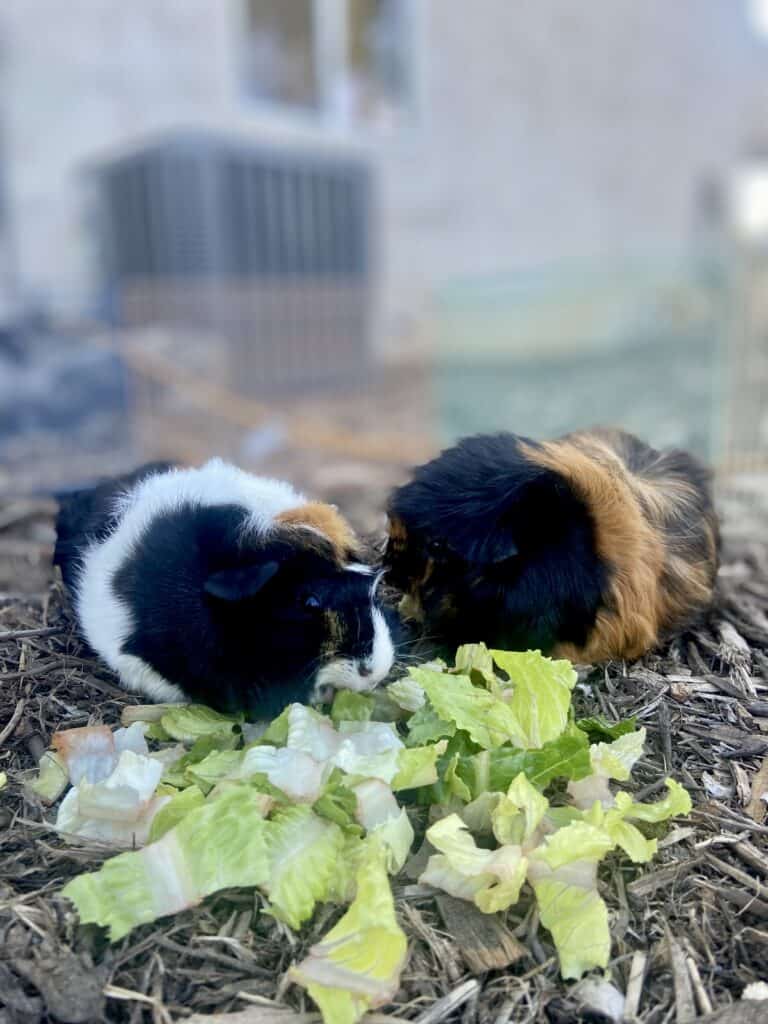As an Amazon Associate we earn from qualifying purchases.
Can guinea pigs eat kale? Yes, guinea pigs may eat kale. Kale is a nutritious leafy green vegetable packed with minerals and vitamins. Guinea pigs need a diet that is rich in vitamin C, and kale is an excellent source of this essential nutrient. Feeding your pet guinea pigs kale can help boost their immune system, improve their digestion, and give them a healthy coat and skin.
Read on to learn more about the health benefits of kale for a guinea pig and how to incorporate this nutritious vegetable into their diet.
Should You Feed Your Pet Guinea Pigs Kale?
If you’re still wondering, “can guinea pigs eat kale?” the answer is yes! A guinea pig can safely eat raw, cooked, or frozen kale. Kale is an excellent Vitamin C source for a guinea pig and provides many health benefits.
Guinea pigs may eat all types of kale, including curly kale, purple kale, and red kale. The best way to feed guinea pigs kale is to give them a small amount at first to see how they react. Some guinea pigs may not be used to eating leafy greens and may need time to adjust to the new food.

If you’re feeding your cavy kale for the first time, start with a small amount. Once the guinea pig has had a chance to try the new food, you can slowly increase the amount you’re giving them.
It’s important to remember that guinea pigs can’t eat too much kale. While kale is a healthy vegetable for your pet guinea pigs, too much can cause problems like bladder stones. If you’re giving your cavy kale, monitor their intake and make sure they’re not eating too much.
Overall, kale is safe for cavies and can be a part of their diet. When feeding kale to a guinea pig, start with a small amount and increase gradually. Be sure to monitor their intake to avoid any problems.
How Often Should My Guinea Pigs Eat Kale?
Guinea pigs may eat kale as part of their regular diet. How often you feed guinea pigs kale will depend on their age and weight. Young guinea pigs should eat kale every day, while older guinea pigs should eat it a few times per week. You should always monitor how much kale guinea pigs are eating, as too much can be harmful.
What Are The Health Benefits Of Kale For Guinea Pigs?
Overall, kale is a nutritious vegetable that is packed with minerals and vitamins. Here are some of the health benefits of kale for your cavy:
1. Supports Organ Functionality
A key benefit of kale for cavies is that it supports the functionality of their organs. Kale is a good source of vitamin A, which is essential for healthy organ function. Vitamin A is also important for vision and immune system health. Feeding a cavy kale can keep their organs functioning properly and support their overall health.
Guinea pigs’ organs are very sensitive, so it’s important to make sure they’re getting the nutrients they need from their food. Kale is a nutritious vegetable that can help support guinea pig’s organ health.
2. Promotes Healthy Skin and Coat
Kale is a good vitamin C source, which is important for promoting healthy skin and coat in guinea pigs. Vitamin C is essential for the production of collagen, which is necessary for healthy skin and hair. Kale is also a good source of other nutrients important for skin health, such as vitamin E and zinc.
If your cavy has a healthy skin and coat, it will be less likely to develop skin problems or fur loss. Feeding kale to a guinea pig can keep their skin and coat healthy and looking their best.

3. Provides Important Nutrients
Kale is a nutrient-rich vegetable that can provide a number of important nutrients to guinea pigs. Kale is a good vitamin C, vitamin E, vitamin A, and zinc source. These minerals and vitamins can help promote healthy skin and coat, support organ function, and boost the immune system.
Kale is also a good fiber source, which can keep the digestive system of cavies healthy. Fiber may also help reduce the risk of bladder stones in guinea pigs. Blader stones can be a serious health problem for guinea pigs, so it’s important to ensure they’re getting enough fiber.
Feeding your cavy kale can help ensure that they are getting the nutrients they need to stay healthy.
4. Boosts the Immune System
The immune system is responsible for defending the body against infection and disease. A healthy immune system is essential for keeping guinea pigs healthy and happy.
Kale is an excellent source of vitamin C, which is important for boosting the immune system. Vitamin C is essential for the production of collagen, which plays a role in immunity. Kale is also a good source of other nutrients important for immune health, such as vitamins A and E, and zinc.
If your cavy has a healthy immune system, it will be less likely to develop infections or diseases. Feeding cavies kale can help boost their immune system and keep them healthy and happy.
5. Aids In Blood Clotting
Kale is a good source of vitamin K, which is important for blood clotting. Vitamin K is essential for the formation of clots, which can help stop bleeding. Kale is also a good source of other nutrients important for blood clottings, such as vitamin C and vitamin E.
If your cavy has a healthy blood clotting system, it will be less likely to experience excessive bleeding. Feeding kale to guinea pigs helps ensure that they have a healthy blood clotting system and reduce the risk of excessive bleeding.
Final Thoughts — Can Guinea Pigs Eat Kale?
As we reach the end of this article, the big question still remains — can guinea pigs eat kale? The answer is yes! Kale is a healthy vegetable that can provide a number of benefits for guinea pigs. Kale is a good source of vitamins, minerals, and fiber, which can help support overall health. So, if you’re looking for a healthy vegetable to add to your pet guinea pig’s diet, kale is a great option!